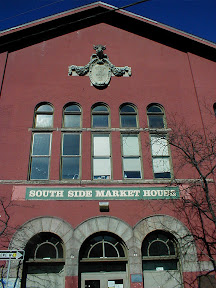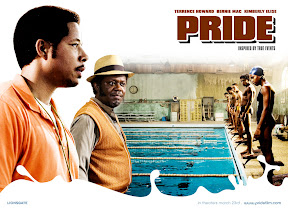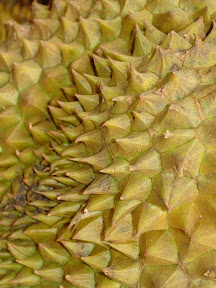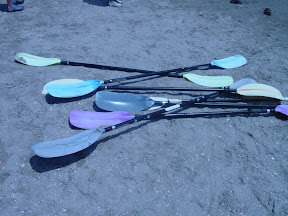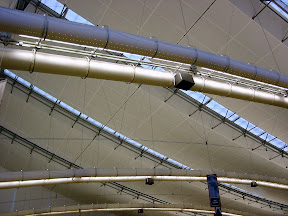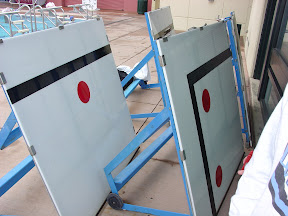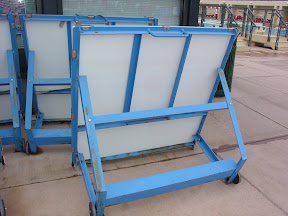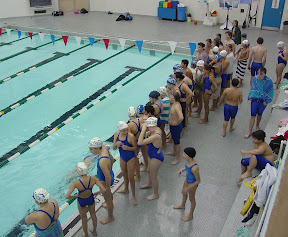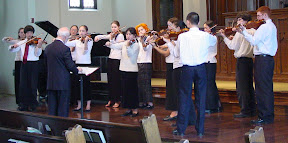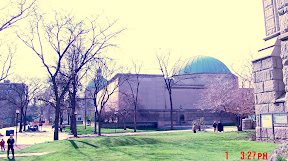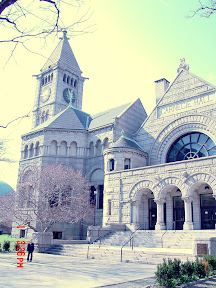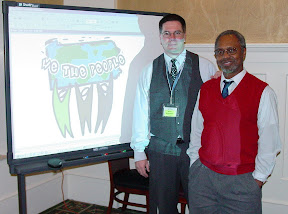| From Art from friends |
In other news, from Jeff Shields Inquirer Staff Writer:
The fight over development of two casinos on the Philadelphia waterfront turned nasty yesterday, as SugarHouse Casino claimed "widespread and pervasive fraud" in the petition drive to ban slots parlors from Delaware Avenue.
The allegations are contained in a complaint that casino lawyers said will be filed today in court. A copy was provided in advance to The Inquirer.
SugarHouse lawyers, led by two attorneys who are investors in the project, Richard Sprague and William Lamb, accuse activists of forging signatures and circulating petitions with two different versions of a proposed ballot question.
John Miller, a spokesman for SugarHouse, said Sprague and Lamb would not comment, but confirmed the complaint will be filed today.
Jeffrey Rotwitt, an attorney for the city's second proposed casino, Foxwoods, said SugarHouse and Foxwoods have "been in collaborative mode" to prepare the complaint.
The complaint contends that fewer than 25 percent of the 27,254 signatures submitted last week can be validated. If true, that would leave anti-casino groups far short of the 20,000 signatures of registered voters required to start the process of putting a ballot question before voters in the May 15 primary.
It would ask voters to approve a charter change that would ban casinos from within 1,500 feet of any home, school or church. If passed, the measure would likely halt casino construction for months, years, or permanently, and potentially void the Pennsylvania Gaming Control Board's Dec. 20 decision to license SugarHouse and Foxwoods over three competitors.
SugarHouse is on the Delaware River in the Fishtown neighborhood; Foxwoods is on the riverfront in South Philadelphia.
The court must schedule a hearing within 10 days and make a decision within 15. If the activists lose, it will be too late to get on the May 15 primary ballot via a petition.
The court challenge makes it clear the casinos take the ballot initiative seriously - particularly with a City Council primary coming up and officials courting votes.
If the anti-casino activists are found to have 20,000 valid signatures, the City Council will be required to vote on whether to put the measure on the ballot. Opinion has been divided on whether nine votes for the measure can be found on the 17-members Council. Twelve Council members could make the petition drive moot by voting it on the ballot themselves.
Members of Casino Free Philadelphia, which led the petition drive, as well as neighborhood residents who collected signatures, expressed shock and defiance at news of the SugarHouse allegations.
"We were ready for a petition challenge, but to be accused of fraud is really another level," said Anne Dicker, a Casino Free Philadelphia organizer. "It's outrageous - it's absolutely outrageous. I don't think a grassroots group should have to face this
onslaught by corporations."
Mary Reinhart, a retiree from Pennsport, said she spent more than 30 hours collecting signatures, often in the freezing cold. "I don't care how aggressively and highly paid they are," she said. "I'm going to stand right up and protect my house and protect my neighborhood."
The forgeries referred to in the complaint involve at least two petition sheets in which the same handwriting is apparently used to fill in all the names, addresses and signatures.
Thomas Neher, who signed an affidavit validating one of those sheets, said he had handed out a number of petitions to friends and relatives. He then signed the affidavits on the sheets when they were returned.
"I did not forge those signatures," Neher, who lives on Front Street, said yesterday.
Other problems include names that don't match up with voter rolls and incomplete or inconsistent addresses, according to the complaint. In exhibits attached to the complaint, there are also some non-Philadelphia residents, and some prank names.
The petitions also carried two different referendum questions. At least 1,020 signatures sought to bar casinos from within 1,000 feet of homes, churches and school, while the others endorsed a 1,500-foot buffer.
Dicker said Casino Free Philadelphia changed its language to 1,500 feet in the process, but submitted the older petitions "in the spirit of making sure that their voices were heard."
Those 1,020 signatures would not likely count toward a referendum calling for the 1,500-foot buffer, City Solicitor Romulo Diaz Jr. said.
Otherwise Diaz said, he expected the signature battle to play out in court much like elections challenges are.
"I wouldn't be surprised if they're argued signature by signature," Diaz said.
Casino Free Philadelphia presented its petition Feb. 21; today was the last day SugarHouse could file. City code requires SugarHouse to submit its lawsuit along with 100 signatures. It is not known how many will be filed today.
Council has scheduled a hearing for tomorrow on the legislation required to put the referendum, which changes the City Charter, on the ballot.
